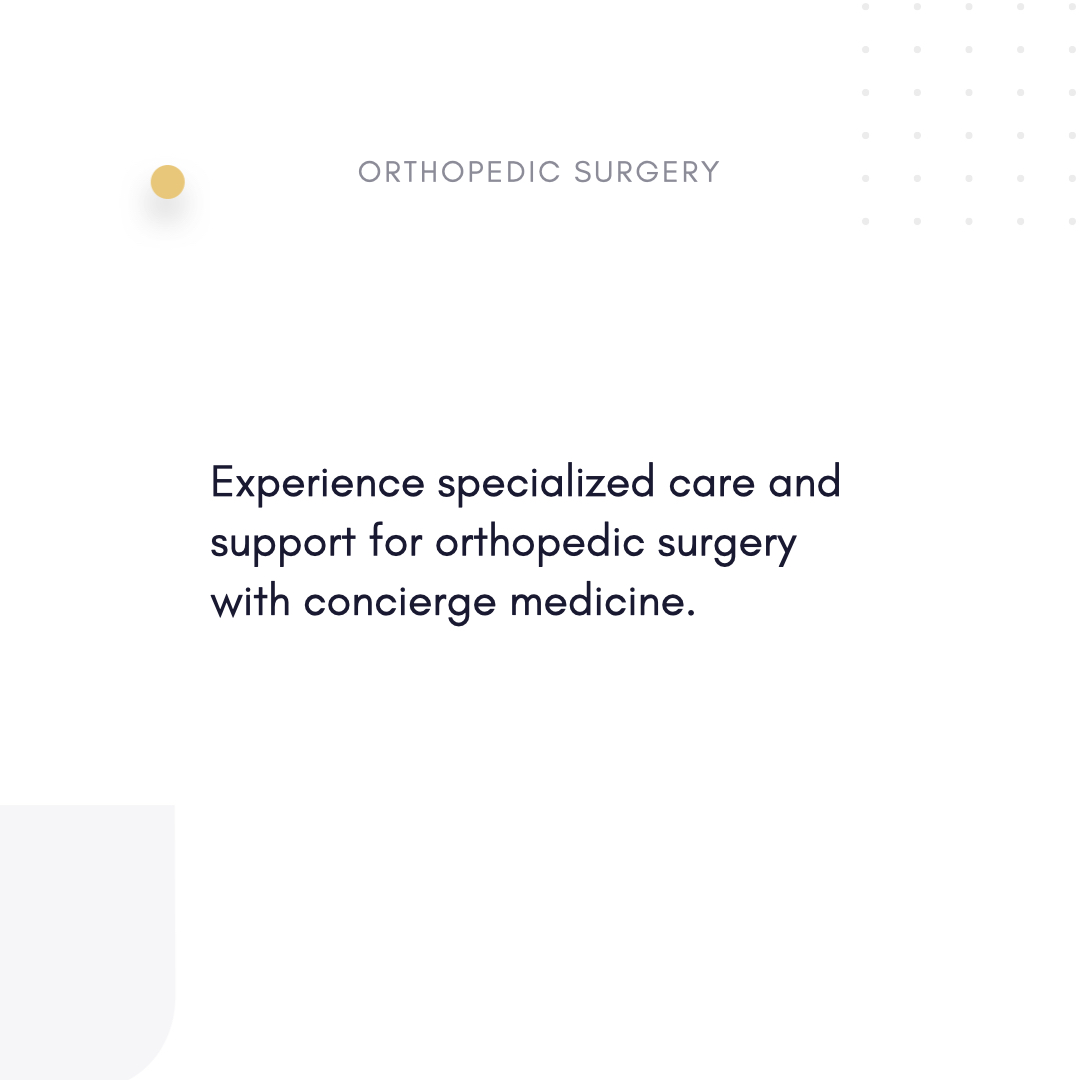



Musculoskeletal disorders, injuries, and conditions that affect the bones, joints, muscles, ligaments, and tendons are treated by orthopedic surgery. As orthopedic surgery patients undergo their surgical journey, concierge medicine provides personalized attention and care. Let's explore how concierge medicine enhances their experience.

Comprehensive Consultations:
Patients can discuss their medical history, symptoms, and treatment goals in detail during concierge medicine consultations with orthopedic surgeons. As a result of these consultations, surgeons can design customized treatment plans based on the needs of each patient.
Timely Access to Specialists:
Concierge medicine practices allow patients to access orthopedic specialists and surgeons more quickly. Shorter waiting times ensure that patients receive timely evaluation and treatment, minimizing unnecessary delays.
Advanced Diagnostic Imaging:
For preoperative planning and evaluating the extent of orthopedic conditions, concierge medicine clinics often have access to advanced diagnostic imaging technologies, including MRIs and CT scans. The accuracy of diagnoses and treatment decisions is improved by high-quality imaging studies.
State-of-the-Art Surgical Facilities:
A state-of-the-art surgical facility equipped with the latest technology and instruments is used for orthopedic surgeries. Modern operating rooms and amenities are provided in concierge medicine practices to optimize patient safety and comfort during surgery.
Personalized Surgical Planning:
With concierge medicine, orthopedic surgeons consider each patient's unique anatomy, lifestyle, and preferences when planning surgery. In addition to addressing any concerns or questions patients may have, surgeons collaborate closely with them to outline the goals of surgery.
Individualized Treatment Approach:
For orthopedic surgery patients, concierge medicine emphasizes individualized treatment approaches. Treatment plans are tailored to meet each patient's needs based on factors such as age, activity level, and underlying health conditions.
Enhanced Continuity of Care:
Dedicated care coordinators oversee all aspects of the surgical journey, providing patients with enhanced continuity of care in concierge medicine. Throughout the entire process, patients receive comprehensive support and guidance, from preoperative evaluations to postoperative follow-up appointments.
Streamlined Communication:
In orthopedic care, concierge medicine simplifies communication between patients, surgeons, and other healthcare providers. Patients receive timely updates, instructions, and guidance throughout their surgical experience through open channels of communication.
Access to Additional Services:
To support patients' health and well-being, concierge medicine practices may offer a range of complementary services in addition to orthopedic surgery. In order to optimize rehabilitation and recovery, physical therapy, nutritional counseling, and pain management strategies may be provided.

Preparation:
Patients undergo a thorough preoperative evaluation to assess their overall health and readiness for surgery. This may include laboratory tests, imaging studies, and consultations with anesthesia providers to ensure a safe anesthesia experience.
Surgical Procedure:
Orthopedic surgery patients receive personalized anesthesia and surgical care in modern operating rooms. Surgeons perform the procedure according to a customized treatment plan developed in collaboration with the patient.
Recovery and Rehabilitation:
To promote optimal recovery and functional outcomes after surgery, patients receive personalized postoperative care and rehabilitation services. Each patient's rehabilitation plan is tailored to meet their unique needs and goals by a team of physical therapists, occupational therapists, and other healthcare providers.
Previous Post